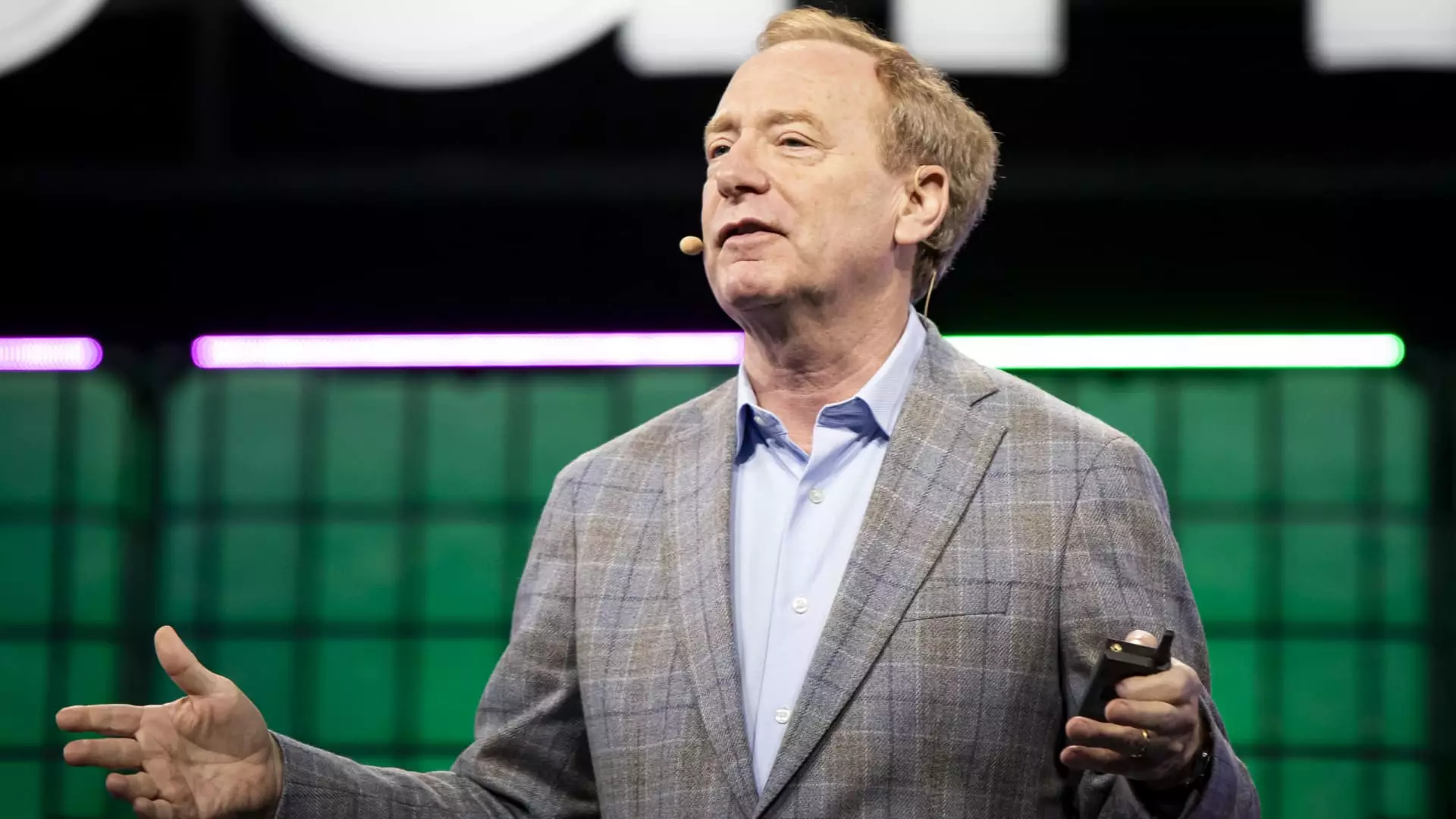In a bold move indicative of its commitment to remain at the forefront of artificial intelligence (AI), Microsoft has unveiled plans to allocate a staggering $80 billion towards building data centers specifically designed to support AI workloads for the fiscal year 2025. This significant investment reflects the growing importance of AI capabilities in the technology landscape, as companies race to leverage the power of machine learning and generative AI.
A noteworthy aspect of Microsoft’s investment strategy is that over half of this budget will be directed toward infrastructure within the United States. This revelation comes from Brad Smith, Microsoft’s Vice Chair and President, who pointed out in a recent blog post that the U.S. currently boasts a leading position in the global AI sector, thanks in large part to the infusion of private capital and innovation from various tech enterprises. These enterprises range from nimble startups pioneering new technologies to long-established corporations that continue to adapt and innovate.
Microsoft’s substantial investment is not taking place in isolation. Its collaborations with leading AI organizations, including OpenAI, have illustrated the merit of joint ventures in advancing technology. Since the launch of OpenAI’s ChatGPT in late 2022, the urgency for companies to develop and deploy their own generative AI capabilities has intensified. With a hefty stake of over $13 billion in OpenAI, Microsoft has not only provided essential cloud infrastructure but has also integrated AI models across its diverse product lineup, including Windows and Microsoft Teams.
Financial data underscores Microsoft’s vigorous approach toward scaling AI capabilities. The company recorded $20 billion in capital expenditures globally in its first fiscal quarter of 2025, with nearly $15 billion allocated specifically for property and equipment. Anticipating further growth, Microsoft’s CFO Amy Hood indicated that capital expenditures would see an upward trajectory in the subsequent quarter. Analysts predict a robust 42% year-over-year increase in property and equipment additions for the fiscal year, demonstrating sustained confidence in AI as a core growth area.
As the race for AI supremacy escalates, concerns have emerged regarding global competition, particularly with China reportedly offering subsidized access to crucial technologies for developing nations. Brad Smith cautioned against complacency by highlighting the potential long-term implications of countries adopting Chinese AI platforms. He stressed the importance for the U.S. to not only engage in critical reflection but also to promote its own AI technologies globally to ensure continued leadership in the sector.
Microsoft’s imminent investment of $80 billion in AI infrastructure stands as a testament to the company’s forward-thinking approach in a rapidly evolving tech landscape. By focusing on bolstering American infrastructure, leveraging partnerships, and acknowledging the global competitive dynamics, Microsoft is positioning itself to lead the charge in the AI revolution. The proactive stance taken by organizations like Microsoft may very well determine the trajectory of AI not only in the U.S. but across the world as nations compete for innovation supremacy.


Leave a Reply